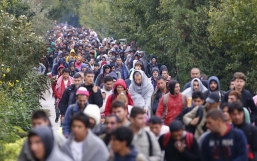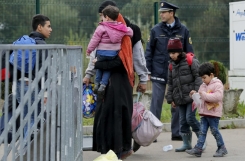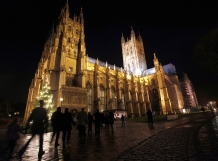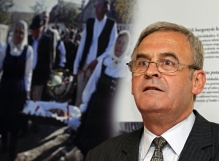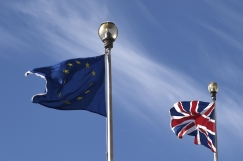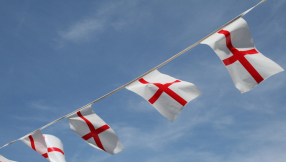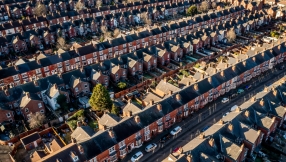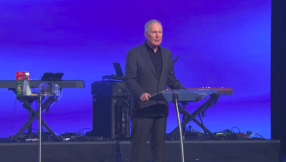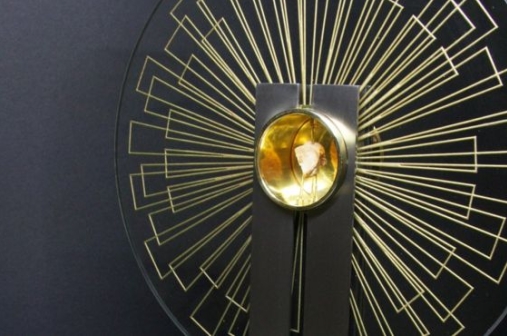
St Thomas Becket's elbow is back, all the way from Hungary.
The relic was taken from the grave of the saint 800 years ago, probably nicked by two Hungarian bishops who were present when it was opened in 1220 for the reburial of the saint. It's quite a rare thing as most of the bones were scattered when Becket's shrine was destroyed at Henry VIII's orders during the English Reformation.
The elbow, in its beautiful reliquary, is to tour in London and Kent, starting with mass at Westminster Cathedral. Among those present will be Hungarian President Janos Ader and the country's Primate Cardinal Peter Erdo.
The Hungarian connection is interesting for history buffs. The relic is usually kept at Esztergom Cathedral, a vast Romanesque basilica – the largest in Hungary – in a small town on the banks of the Danube. Esztergom was Hungary's capital for a few hundred years before it moved to Buda, and was a refuge to two exiled Anglo-Saxon princes, Edward and Edmund.
More interesting, though, is whether Becket is really a safe choice for Hungary's Catholics. He was martyred, of course, in Canterbury Cathedral in 1170, after his friend Henry II had become enraged at his obstructiveness and ingratitude. Henry wanted to bring the Church under his own control. Becket's crime was to refuse to toe Henry's line. Henry's furious question: "Who will rid me of this turbulent priest?" (or words to that effect) was taken as a green light by four knights, who rode off and hacked Becket to death.
According to GK Chesterton, what they did was highly symbolic. In an essay entitled The Unfinished Temple, he writes: "When four knights scattered the blood and brains of St Thomas of Canterbury, it was not only a sign of anger but of a sort of black admiration. They wished for his blood, but they wished even more for his brains.
"Such a blow will remain forever unintelligible unless we realise what the brains of St Thomas were thinking about just before they were distributed over the floor. They were thinking about the great mediaeval conception that the Church is the judge of the world.
"Becket objected to a priest being tried even by the Lord Chief Justice. And his reason was simple: because the Lord Chief Justice was being tried by the priest...The kings were themselves in the dock. The idea was to create an invisible kingdom, without armies or prisons, but with complete freedom to condemn publicly all the kingdoms of the earth."
These are not comfortable words, either for the Catholic Church in Hungary or for the country's prime minister, Viktor Orban.
Orban's right-wing government is passionately opposed to other European countries' migration policy. He has equated migration with terrorism and brought in tougher immigration rules that have been harshly criticised by the UN's refugee agency. Orban ordered Hungary's borders with Serbia and Croatia closed with razor-wire fences. Under his regime, Hungary granted protection to only 508 refugees last year. His record on human rights is suspect: an open letter to him from Human Rights Watch in April 2014 raised concerns about judicial independence, media freedom, religious freedom, the rights of disabled and homeless people and discrimination against Hungary's Roma people.
Orban himself is a member of the Calvinist Hungarian Reformed Church but he has strong links with the Catholic Church (his wife is Roman Catholic) and receives support from its priests and bishops. Cardinal Erdo, who is accompanying Becket's elbow, said the Church would not help to house refugees as it would constitute human trafficking. Catholic churches in Hungary failed to respond to Pope Francis' appeal for a collection for refugees, with one bishop, Laszlo Kiss-Rigo, saying: "They're not refugees. This is an invasion. They come here with cries of 'Allahu Akbar.' They want to take over." Kiss-Rigo said he was in "total agreement" with Orban and that the Pope "doesn't know the situation".
Anyone who thinks it's easy to deal with the migrant crisis has not been paying attention. An object lesson is to be found in Austria, where a far-right president was nearly elected after public discontent at its liberal refugee policy.
But such an alliance, in which the Church's statements echo so precisely the policies of the state, demonising the desperate and refusing to help the helpless, is deeply troubling.
Never mind Becket's elbow. What would have been in his head?
Follow Mark Woods on Twitter: @RevMarkWoods










